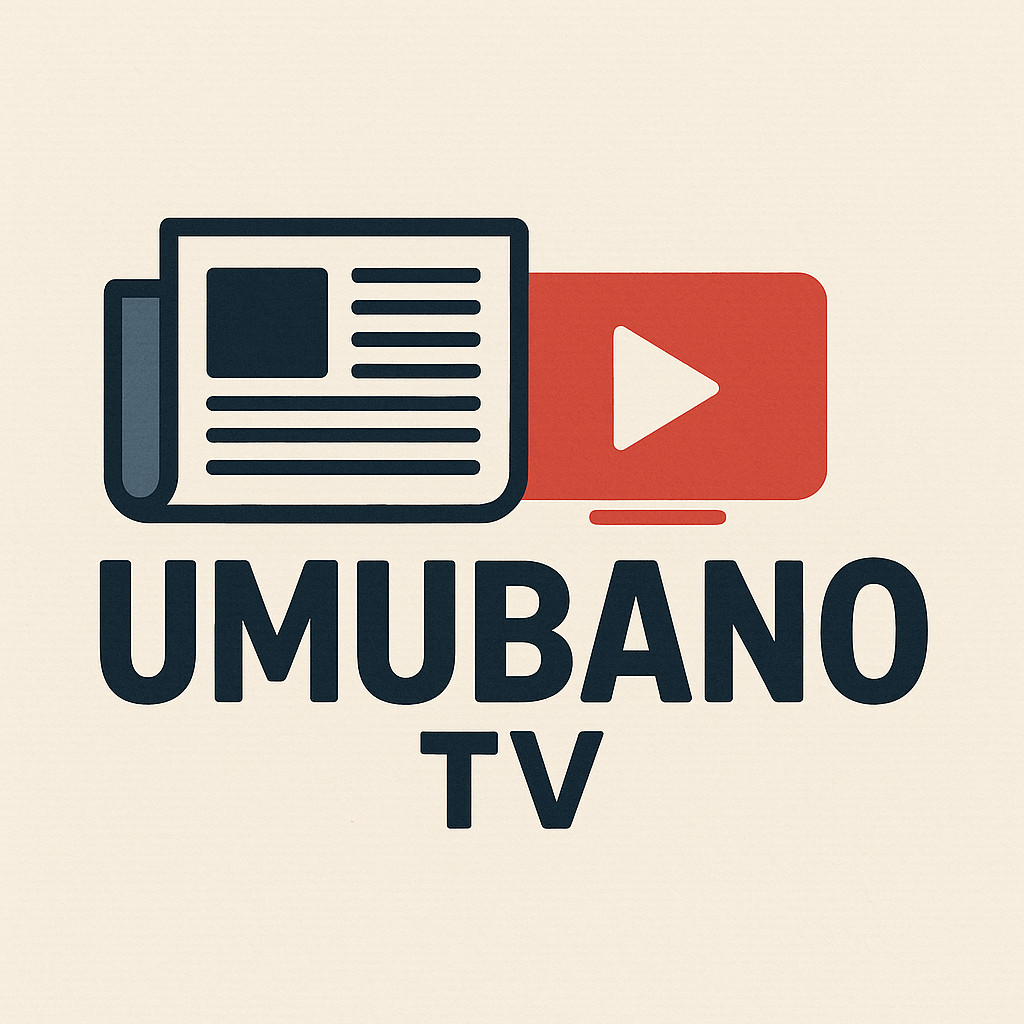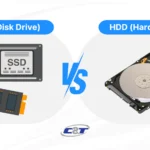Frequently, the thought comes suddenly. It may come as an urgent roar or a sudden whisper: *”I need to sell my house fast.”
Perhaps it’s a three-week start date for your ideal job offer in a new city. The burden of an inherited property, a heartbreaking reminder of a loved one, sitting empty hundreds of miles away, could be the cause. It might be the strain of mounting expenses, the need to sell assets due to a divorce, or just the weariness of managing a problematic rental property as a landlord.
For whatever reason, the conventional real estate process—a grueling process of decluttering, staging, showings, negotiations, inspections, and anxiously awaiting mortgage approvals—feels more like an impassable barrier than a way forward.
This is the world of the quick sale, a parallel universe to the traditional market that prioritizes speed and convenience over all else. You’ve probably seen the signs placed at busy intersections or the advertisements that appear in your social media feed: “We Buy Houses for Cash!” “Get a Fair Offer in 24 Hours!” and “Sell Your House As-Is.” However, what does entering this world actually mean? When you decide to sell fast, what can you really anticipate?
I’ve written about the intricacies of the property market for more than ten years, so I’ve seen it all. I’ve talked to homeowners who felt taken advantage of and others who were saved by a quick sale. One factor nearly always makes the difference: knowledge.
This isn’t your average article. This 4000-word in-depth analysis of the “Buy My House” ecosystem is your all-inclusive playbook. We’ll reveal the various buyer types, take you step-by-step through the procedure, and give you the straight scoop on the offers you’ll get. Above all, we’ll provide you with practical real estate advice so that, should you decide to follow this route, you do so with assurance and clarity.
The Power of the Fast Sale: Why “Sell Fast” Isn’t Just a Google Search
Prior to breaking down the “how,” let’s examine the “why.” Our on-demand culture has led to a surge in demand for a quicker, more reliable method of selling a property. Despite its many advantages, the conventional real estate model is rife with uncertainty.
The Classic Gauntlet:
- Time: According to recent Zillow data, the average time to sell a home in the United States, from listing to closing, can vary from 55 to 70 days. This can go on for months in slower markets.
- Effort: You must actively participate in this process. Deep cleaning, decluttering, repairs, staging, and then abruptly leaving your house for showings are all part of it.
- Uncertainty: A deal is not finalized just because an offer is accepted. Almost 5% of home sale agreements expire, frequently as a result of financing problems or unforeseen inspections.
- Costs: The costs mount up rapidly. Your final net profits are impacted by seller concessions, agent commissions (usually 5–6%), staging fees, and repair expenses.
An appealing substitute for this gauntlet is a quick sale. The transaction is based on a distinct value proposition. For speed, convenience, and certainty, you are trading a portion of your equity rather than your house for the best price.
In certain circumstances, this route is most attractive to sellers:
- Sudden Relocation: An urgent move is necessary due to a family emergency or a new job.
- Financial Duress: Needing quick cash, having to pay off large debt, or facing foreclosure.
- Inherited Property: Handling the sale of a deceased relative’s house is frequently emotionally taxing and from a distance.
- Distressed Property: You are unable or unwilling to make the necessary major, expensive repairs to the house.
- Weary Landlord: Desiring to sell a rental property without upsetting renters or having to deal with the eviction procedure.
- Divorce or Separation: The need to divide assets swiftly and amicably without a drawn-out sales procedure.
The phrase “Buy My House” begins to sound less like a gimmick and more like a workable solution if you see how your circumstances are represented here.
Breaking Down the “Buy My House” Ecosystem: Who Are the Purchasers?
You’re not dealing with a single buyer type when you choose to investigate a quick sale. Every player in the ecosystem you’re entering has a unique business strategy. The first and most important of our real estate tips is to know who you’re speaking with.
The Tech Giants Knocking on Your Door: The iBuyers (Instant Buyers)
With billions of dollars in venture capital and sophisticated algorithms at their disposal, iBuyers are the newest kids on the block. Businesses like Offerpad and Opendoor have brought a tech-forward approach to home buying, revolutionizing the quick sale market.
- The Model: You visit their website and fill out the information about your property. In order to produce an initial cash offer, usually within 24 to 48 hours, their algorithm, called an Automated Valuation Model (AVM), examines market data, recent comparable sales, and the features of your property. They perform a quick video or in-person inspection to confirm the home’s condition if you agree.
- The Advantages:
- Speed and Convenience: The procedure is mostly digital and optimized. Usually, you can close in as little as 14 days.
Although it can be modified following the home assessment, the initial offer is data-driven and generally dependable. - **Flexibility:** They frequently let you select the closing date, which is a big plus when it comes to moving arrangements.
- The Drawbacks:
- The Offer Price: It is still a discount even though it is frequently closer to market value than traditional investors.
- The Fees: The big catch is this. In order to cover their holding costs and the risk of reselling the property, iBuyers charge a service fee, usually between 5 and 6% (which is comparable to a real estate agent’s commission).
- Repair Concessions: Following their evaluation, they will nearly always provide a list of necessary “repairs” and subtract the price from your final offer. Your net profits may drop dramatically as a result.
- Strict Criteria: iBuyers usually only buy houses that were constructed in a specific year, within a specific price range, and in generally good condition. For properties that are actually in distress, they are not the answer.
The Proven Investor: The Local Cash Buyer
Local real estate investors were the preferred option for people who needed to sell fast long before iBuyers existed. These could be private citizens, modest family-run companies, or bigger, nationwide chains like “We Buy Ugly Houses.”
- The Model: These buyers buy properties straight from sellers using their own money or private funding. Usually, they want to fix up the house so they can either “flip” it for a profit or keep it as a rental.
- The Advantages:
- “As-Is” Actually Means “As-Is”: This is their greatest strength. They will purchase homes with significant structural flaws, old kitchens, leaky roofs, or even issues with the foundation. Nothing needs to be fixed by you.
- Unmatched Speed: Due to their extensive experience and use of cash, they can frequently close in as little as 7–10 days.
- No Fees or Commissions: You only receive what they offer. No unstated service charges or agent commissions need to be subtracted.
- The Drawbacks:
The price paid for selling a property in any condition is *The Lowest Offers*. The after-repair value (ARV) less the holding, repair, and desired profit margin expenses is the basis for their offers. This is frequently 70–80% of the current market value of the house, or even less for severely damaged homes. - Differing Professionalism: There is no regulation in this sector. Some may be dishonest or employ high-pressure techniques, but the majority are honest, professional businesspeople. The process of vetting is absolutely essential.
Real Estate Wholesalers: The Quick Sale’s Middlemen
Every seller needs to be aware of this crucial distinction. Not every bidder on your house plans to purchase it.
- The Model: A wholesaler wants to get your property under contract at a low price. For a higher price, they subsequently “assign” (sell) that contract to an end buyer, typically a cash investor from their network. The difference between the price they agreed to pay you and the price the final investor pays is their profit.
- What This Means for You:
- Uncertainty: The ultimate buyer’s identity is unknown. The wholesaler must find a buyer in order to complete the transaction. If they are unable to, the contract might be terminated, leaving you to start over after squandering time.
- The Contract: An “assignment clause” or language permitting assignment will be included in the purchase agreement.
- How to Spot Them: They might be more concerned with how low a price you’ll accept than the details of your house. Since they are not using their own funds, they might also be reluctant to present proof of funds. Although wholesaling is a valid and lawful real estate tactic, it is up to you as the seller to determine whether you can handle this additional degree of uncertainty.
The Fast Sale, Step-by-Step: From the Initial Call to the Cash in Hand

The quick sale process has a similar, accelerated trajectory regardless of the kind of buyer you are dealing with. What to anticipate is as follows:
Step 1: Establishing Communication & Making the First Offer
The first step will be to call the business or complete an online form. Be ready to give basic details about your property, such as its address, age, size, number of bedrooms and bathrooms, and overall condition. Tell the truth. Ignoring serious problems will only lead to more issues down the road. They will provide a preliminary, no-obligation offer range based on this information and a cursory review of local market data.
The property assessment is the second step.
A property visit is the next step if you are comfortable with the first range. This isn’t your typical home inspection, where you look for every little defect. Verifying their repair estimate is the sole purpose of this visit for an investor. Usually taking only 15 to 30 minutes, they will inspect the property and evaluate expensive items.
- Roof condition and age
- The operation of the HVAC system
- Wiring and electrical panel
- Plumbing and leak detection
- Integrity of the foundation
- The overall state of bathrooms and kitchens
Useful Tip: Your house does not need to be prepared for this visit. They are taught to look past personal belongings and clutter to the “bones” of the house.
Step 3: The Contract & The Firm Cash Offer
After the walkthrough, you ought to get a solid, written cash offer within a day. The time for truth is now. The offer will be made “as-is” and won’t be reliant on funding.
Crucially, you need to carefully read the purchase agreement. Look for:
- The Purchase Price: Explicitly mentioned.
- Closing Date: Usually flexible, but should be specified.
The standard “as-is” clause shields the buyer from any claims you make regarding the state of the property after closing. - Inspection Period: A genuine cash buyer requires little to no inspection time. A lengthy or ambiguous inspection clause may be cause for concern.
- Assignment Clause: As previously mentioned, this suggests that you might be working with a wholesaler.
Backlink Suggestion: It’s always advisable to speak with an expert for more information on legal protection. One resource for locating a qualified real estate lawyer in your state is the American Bar Association (https://www.americanbar.org/).
The Closing Process (Step 4)
The buyer will open escrow with a nearby title company or real estate lawyer if you accept the offer and sign the contract. To make sure there are no liens or claims against the property, the title company will perform a title search. The money will be transferred straight to your bank account after you sign the last closing paperwork. From contract signing to cash in hand, the entire closing process can be completed in as little as one week.
The Crucial Question: What Is Their Price for My Property?
The most crucial query and the one that causes the most misunderstanding is this one. Let’s be clear: a “Buy My House” company will not give you full market value. You are using the equity in your home to pay for the speed and convenience.
You must comprehend the investor’s formula in order to comprehend the offer. In general, it appears like this:
[ARV] – [Holding Costs] – [Repair Costs] – [Profit Margin] = Your Offer
Let’s dissect that using a fictitious example:
- After-Repair Value (ARV): The investor calculates that your home would fetch $300,000 on the open market after it has been completely renovated. In their computation, this is the most crucial figure.
- Repair Costs: They estimate that installing new flooring, replacing the roof, and updating the kitchen will cost $40,000.
- Holding Costs: These are the expenses they pay for utilities, insurance, property taxes, and capital costs while they own the property. We’ll put this at $10,000.
- Profit Margin: To remain in business, the investor must turn a profit. Usually, this represents 10–15% of the ARV. 10% of $300,000 in our example is $30,000.
Let’s do the math now:
$300,000 (ARV)
- $40,000 for repairs
$10,000 (Costs of Holding) - $30,000 (profit)
= Your Cash Offer of $220,000
In this case, you receive an offer of $220,000 for a house that could sell for between $250,000 and $260,000 on the open market given its current state. However, you would have to deduct agent commissions (~$15,000), possible seller concessions (~$5,000), and your own closing costs (~$3,000) from that conventional sale price, leaving you with about $237,000… after months of uncertainty and work.
Although the $220,000 cash offer is less, it is firm, quick, and comes with no fees. The cost of the service is the $17,000 that is different. Is it worthwhile? You are the only one who can make that decision.
Source Link Suggestion: Reputable real estate websites such as Redfin (https://www.redfin.com/news/) frequently release data reports that compare iBuyer offers to open market sales, which can provide you with a data-supported perspective on the possible trade-off.
Real Estate Advice: Your Complete Checklist for “Buy My House” Businesses
Some shady characters may be drawn in by the promise to sell fast. Self-defense is crucial. Before moving forward with any buyer, make sure they have completed this vetting checklist. Of all the real estate tips in this guide, this is the most important.
✅ Verify Authenticity and a Physical Footprint
- Do they have a reputable, well-designed website? Or is it a generic, low-cost landing page?
- Can you find their physical office address on Google Maps?
- Read any complaints and look up their Better Business Bureau (BBB) rating.
- Check Google, Facebook, and other third-party websites for online reviews. A large number of negative reviews can be just as concerning as none at all.
✅ Request Proof of Funds
- A recent bank statement or a letter from their bank confirming they have the money to complete the transaction will be no trouble at all for any genuine cash buyer.
- It’s a huge red flag if they falter or offer justifications. Most likely, they are a wholesaler without a buyer yet.
Examine the contract carefully.
- Never sign a contract under duress. Request a copy and review it for at least 24 hours.
- Get a real estate lawyer to look it over. This is a $300–$500 investment that can prevent a lot of headaches.
- Keep an eye out for ambiguous wording, unstated costs, or provisions that give the buyer the right to cancel at any time.
✅ Watch Out for High-Pressure Strategies
- Phrases such as “This offer is only good for the next hour” or attempts to instill feelings of guilt or desperation are indicative of a predatory or amateur operator.
- A seasoned investor will make their offer, break down their figures, and give you a fair amount of time to think it over.
✅ Receive Several Offers
- This is the most effective method to make sure you’re receiving fair treatment.
- Get in touch with a minimum of three distinct businesses: one local investor, one national franchise, and one iBuyer (if your house qualifies).
- Inform them that you are talking to other purchasers. Everyone is motivated to perform at their highest level by competition.
Interlink Suggestion: *Once you have several offers, you can make the most of them by using our guide on [Negotiating 101: Getting the Best Price for Your Property].
Are You a Good Fit for a Fast Sale? A Sincere Evaluation
So, how do you decide? The decision between a traditional sale and a quick sale depends on your own priorities. Consider these questions:
- What is my main objective? Is it speed, certainty, and convenience (think of a quick sale), or is it obtaining the best price possible (pick traditional)?
- What’s my schedule? How long do I have to wait for the right buyer—60 to 90 days? Or do I have to leave in 30 days or less?
- How is my property doing? Is it ready to move in and updated? Or does it require repairs worth tens of thousands of dollars, which I cannot afford?
- How much stress and uncertainty can I handle? Am I able to endure the emotional turbulence of negotiations, showings, and the collapse of possible deals? Or do I require a straightforward, assured result?
When used properly, a quick sale is a great tool. With the help of this financial tool, you can trade equity for peace of mind and time. However, it is not a panacea, nor is it the best instrument for all tasks.
The Last Word: Strengthening Your Choice
The murky backstreet of real estate is no longer the realm of “Buy My House” businesses. A sizable segment of the market receives a valuable service from this respectable, multibillion-dollar industry. However, the adage “caveat emptor”—let the buyer beware—remains relevant in this world.
You now possess the knowledge necessary to successfully navigate this world. You are aware of the participants, the procedure, the financial aspects, and the possible hazards. You have all the real estate tips you need to evaluate any company that extends an offer to you and to look at it objectively and objectively.
The choice to sell fast is a big one. It necessitates an objective evaluation of your financial situation, schedule, and individual objectives. You have taken the most crucial step by reading this guide: you have transitioned from a state of uncertainty to one of power. You can now make a decision based on knowledge rather than desperation. And regardless of the route you take, that is the secret to a successful sale.
SOURCE:
Zillow Research:https://www.zillow.com/research/
American Bar Association:https://www.americanbar.org/
Redfin News:https://www.redfin.com/news/
Better Business Bureau:https://www.bbb.org/









